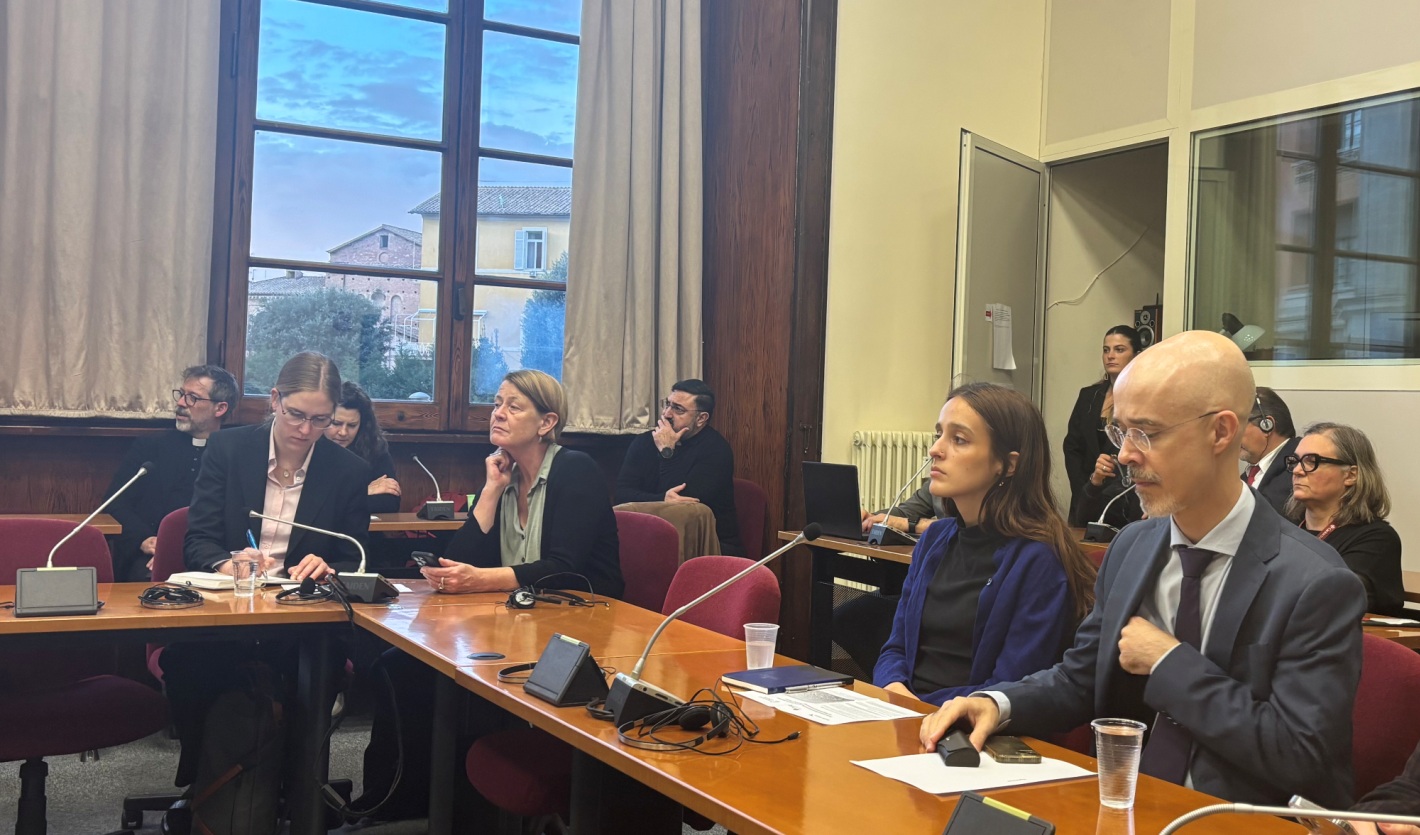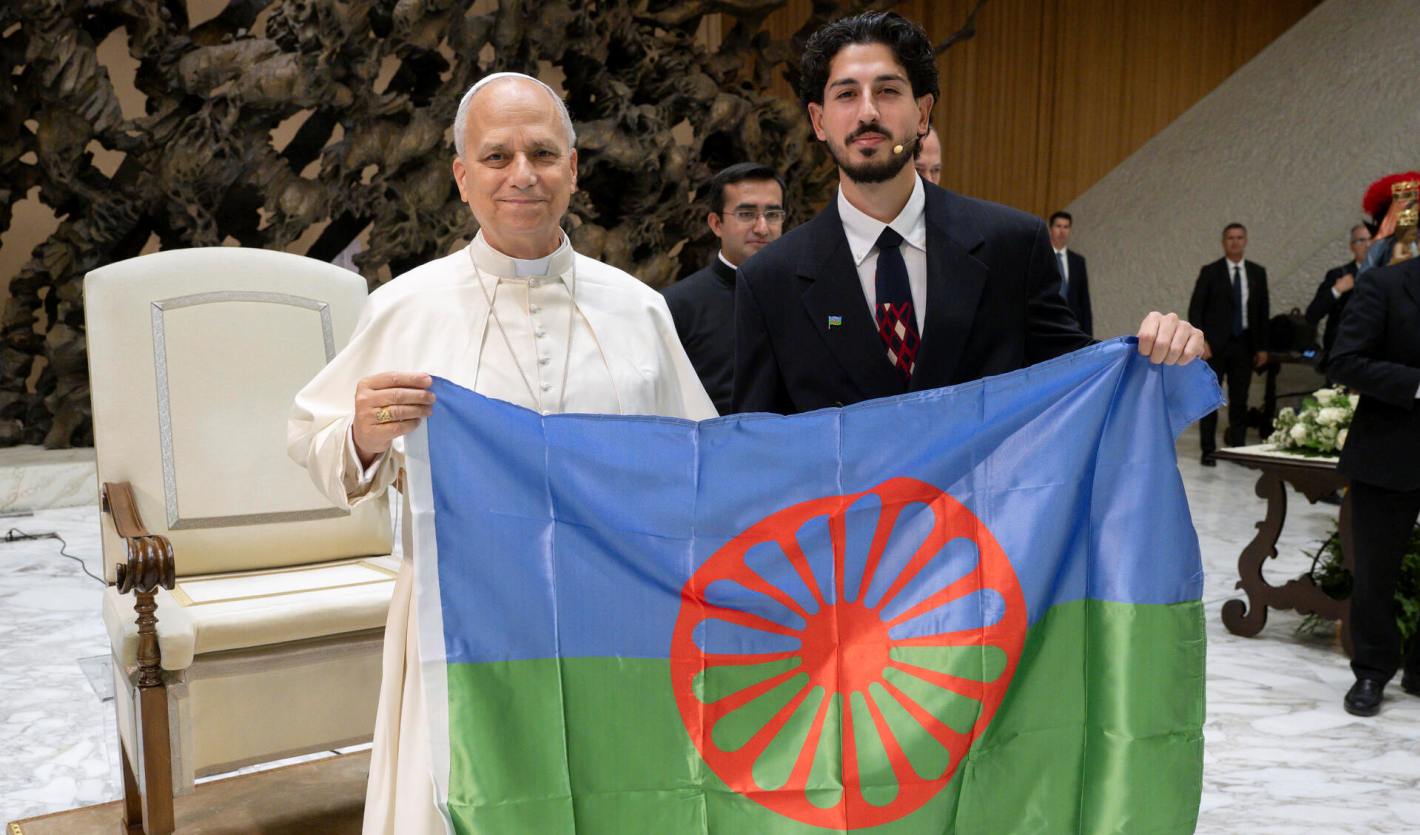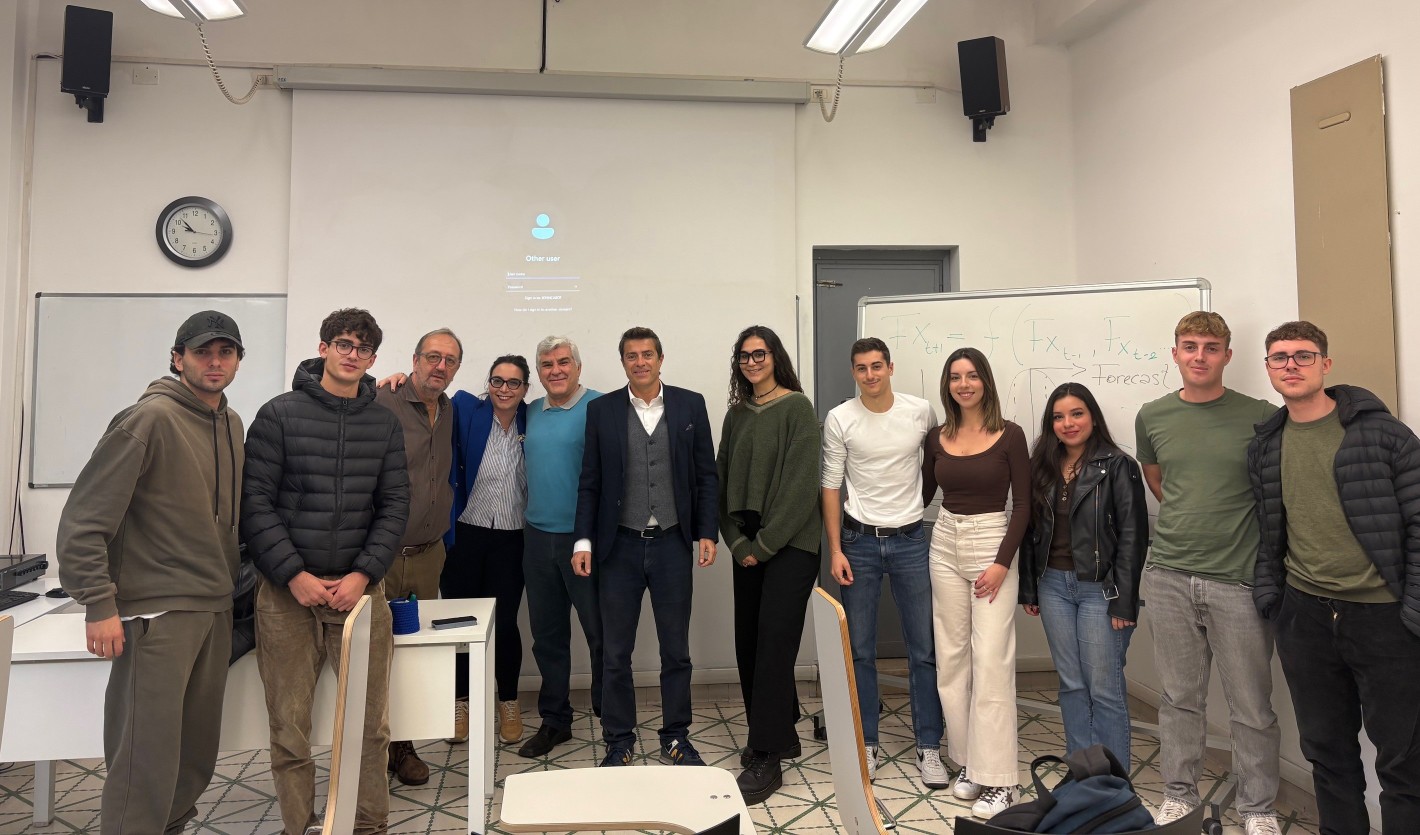Amid the Jubilee year in Rome, the launch of the Faith Leaders’ Joint Statement on the Right to Food and Nutrition for Marginalized Communities, Including Children on October 22 represented both a deeply symbolic and practical call to justice. Organized by World Vision, Caritas Internationalis, and the World Council of Churches (WCC) and hosted at Palazzo San Callisto in Rome, the event gathered religious, academic, and institutional actors to reaffirm food as both a “Sacred Human Right” and a “Moral Imperative.” Announced at a crucial time following the World Food Forum 2025 and during FAO’s 53rd Session of the Committee on World Food Security, the occasion transcended the boundaries of religious dialogue, serving as a collective moral reckoning in the face of systemic hunger and malnutrition that continue to affect millions of people worldwide. Students in the course PL 328 International Humanitarian Action taught by Professor Viviana De Annuntiis (Department of Political Science and International Affairs) were lucky enough to be offered a seat at the negotiating table, thus favoring youth participation and advocacy through intergenerational dialogue.
The Scale of Injustice and the Turn Toward Structural Justice
The Joint Statement begins with a sobering fact: 673 million people suffer from chronic hunger, while over 50 million children face acute malnutrition. Against this backdrop, faith leaders and institutional representatives converge on a shared understanding; that hunger is neither a natural inevitability nor merely a humanitarian issue caused by lack of funding, but rather a failure of justice and political will. Rather than approaching food insecurity as a temporary crisis to be alleviated through charity, the document insists upon a shift toward structural justice, an equitable approach that demands embedding the right to food within constitutional and legal frameworks, transforming moral concern into enforceable duty. As noted by the United Nations Special Rapporteur on the Right to Food, Michael Fakhri, true progress depends on accountability mechanisms that ensure governments and international bodies act not out of benevolence, but out of an obligation to tackle the three root causes of food insecurity and hunger: the exploitation of labor, oppression, and the occupation of people’s land.
Concrete Solutions: A Roadmap for Transformative Action
The Joint Statement outlines a comprehensive set of concrete policy measures aimed at transforming moral commitment into systemic change. These measures include: a recommitment to the right to food; the reallocation of resources; investment in smallholder farmers; addressing climate change; canceling unsustainable and illegitimate debt; ensuring participation; strengthening social protection.
The Significance of the Jubilee Call
Framed within the Jubilee tradition, the launch symbolized not only renewal but also restoration and reparation, at a time when multilateralism faces profound challenges. Deeply rooted in both moral theology and social justice, the Jubilee has historically called for debt forgiveness, equity, and the redistribution of resources. This modern articulation of the same principle seeks to reset global priorities in favor of human dignity and ecological balance.
“As a student and a member of civil society, I had the rare opportunity to share my perspective during the discussion, and it ultimately became a moment that reminded me that advocacy begins with presence and voice,” said Martina Atanasova, an International Affairs major. “Speaking among faith leaders, policymakers, and scholars, I realized that our generation’s role is not simply to inherit these conversations, but to sustain and transform them. The experience reaffirmed my belief that moral conviction must be paired with participation, and that even small contributions, when grounded in empathy and justice, can resonate within the broader movement toward a more equitable and nourished world.”
The World Food Programme representatives emphasized that we all carry an individual responsibility to act, and so to translate awareness into tangible societal pressure across different levels of influence, from local communities to global platforms we have access to. The presence of the Holy See further served as a reminder that faith, policy, and action are most powerful when united in service of human dignity. Witnessing this convergence of moral leadership and institutional commitment offered a glimpse of what true global solidarity can look like when compassion becomes a shared responsibility.
By confronting the root causes of hunger, conflict, inequality, debt, and neglect, the Faith Leaders’ Statement elevates food security from a policy issue to a moral and legal imperative. Its proposals embody a vision in which justice is not aspirational but actionable, and solidarity, rather than charity, becomes the foundation of global food governance.












